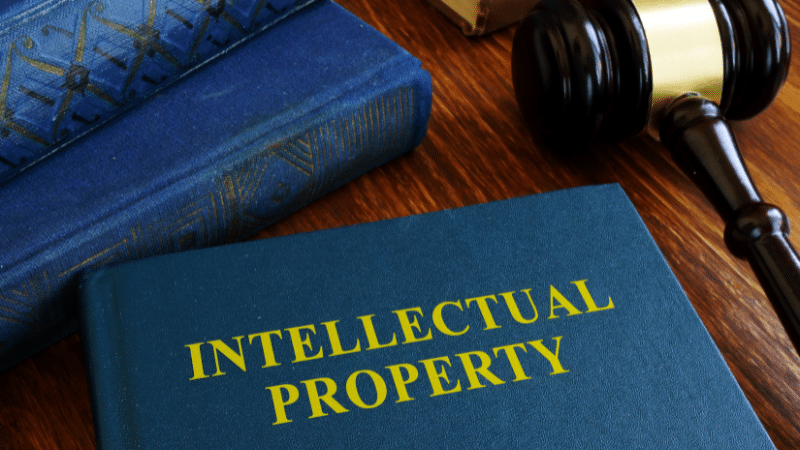Preserving Your Legacy: Strategies for Effective Estate Planning

Estate planning is a vital aspect of financial management that often gets overlooked or delayed. Many individuals believe it’s something to consider later in life or assume it’s only necessary for the wealthy. However, effective estate planning is crucial for individuals of all income levels to ensure their wishes are carried out and their loved ones are taken care of after their passing.
Importance of Estate Planning
Estate planning involves more than just drafting a will. It encompasses a comprehensive strategy to manage and distribute assets in the event of death or incapacitation. Without proper planning, the distribution of assets may be subject to lengthy court proceedings, potential disputes among family members, and substantial tax liabilities.
Common Misconceptions
One common misconception about estate planning is that it’s only for the wealthy. In reality, anyone who owns assets, regardless of their value, can benefit from having an estate plan. Another misconception is that estate planning is a one-time event. In truth, estate plans should be regularly reviewed and updated to reflect life changes and evolving goals.
Understanding Estate Planning
What is Estate Planning?
Estate planning is the process of arranging for the management and distribution of one’s assets after death or in the event of incapacity. It involves creating legal documents that outline how assets should be distributed, who will manage them, and who will make decisions on behalf of the individual if they become unable to do so themselves.
Components of an Estate Plan
An estate plan typically consists of several key documents, including a will, trust(s), power of attorney, and healthcare directives. These documents work together to ensure that the individual’s wishes are carried out and that their assets are protected and distributed according to their desires.
Identifying Your Goals
Defining Your Objectives
Before creating an estate plan, it’s essential to identify your goals and objectives. This may include providing for your family, minimizing tax liabilities, supporting charitable causes, or ensuring the smooth transfer of assets to future generations.
Considering Beneficiaries
When creating an estate plan, it’s crucial to consider who will be the beneficiaries of your assets. This may include family members, friends, charitable organizations, or business partners. Clearly outlining your wishes can help avoid confusion and potential conflicts among beneficiaries.
Asset Inventory and Valuation
Cataloging Assets
The first step in estate planning is to create an inventory of all your assets. This includes real estate, investments, bank accounts, retirement accounts, life insurance policies, and personal belongings. Having a comprehensive list of assets will help ensure that nothing is overlooked in the planning process.
Determining Their Value
Once you have compiled a list of assets, it’s essential to determine their value. This may require obtaining appraisals or working with financial professionals to assess the fair market value of assets such as real estate, businesses, and valuable personal property.
Will and Trust Creation
Importance of a Will
A will is a legal document that outlines how you want your assets to be distributed after your death. It allows you to designate beneficiaries for specific assets, appoint guardians for minor children, and name an executor to oversee the distribution of your estate. Having a will is essential for ensuring that your wishes are carried out and that your assets are distributed according to your desires.
Types of Trusts
In addition to a will, many individuals choose to create one or more trusts as part of their estate plan. Trusts can serve various purposes, such as avoiding probate, providing for minor children or individuals with special needs, and minimizing estate taxes. Common types of trusts include revocable living trusts, irrevocable trusts, and charitable trusts.
Naming Executors and Trustees
Responsibilities of Executors
An executor is responsible for carrying out the instructions outlined in your will and overseeing the probate process. They are tasked with gathering and inventorying assets, paying debts and taxes, and distributing assets to beneficiaries according to your wishes. It’s essential to choose an executor who is trustworthy, organized, and capable of handling the responsibilities of the role.
Role of Trustees
If you have created a trust as part of your estate plan, you will need to name a trustee to oversee the trust’s administration. The trustee is responsible for managing trust assets, distributing income and principal to beneficiaries, and ensuring that the terms of the trust are carried out according to your wishes. Like an executor, the trustee should be someone you trust to act in the best interests of your beneficiaries.
Power of Attorney and Healthcare Directives

Ensuring Decision-Making Authority
A power of attorney is a legal document that grants someone the authority to make financial decisions on your behalf if you become incapacitated. Similarly, healthcare directives, such as a living will or healthcare proxy, allow you to designate someone to make medical decisions on your behalf if you are unable to do so yourself. These documents are essential for ensuring that your wishes are followed and that someone you trust is empowered to act on your behalf in the event of incapacity.
Medical Wishes
When creating healthcare directives, it’s essential to clearly outline your medical wishes and preferences. This may include instructions regarding life-sustaining treatments, organ donation, and end-of-life care. By documenting your wishes in advance, you can ensure that your healthcare preferences are known and respected by your loved ones and medical providers.
Tax Planning
Understanding Estate Taxes
Estate taxes are taxes imposed on the transfer of property at death. These taxes can significantly reduce the value of your estate and diminish the assets available for distribution to your beneficiaries. Understanding how estate taxes work and implementing strategies to minimize tax liabilities is an essential aspect of estate planning.
Minimizing Tax Liabilities
There are several strategies that individuals can use to minimize estate taxes, such as making gifts during their lifetime, utilizing trusts, and taking advantage of tax deductions and exemptions. Working with a knowledgeable tax advisor or estate planning attorney can help you identify the most effective tax planning strategies for your situation and ensure that your estate plan is designed to minimize tax liabilities.
Read More: Navigating the Maze: A Comprehensive Guide to Estate Planning
Updating Your Plan Regularly
Life Changes Necessitating Updates
Life is constantly changing, and your estate plan should reflect those changes. Events such as marriage, divorce, the birth of children or grandchildren, changes in financial circumstances, or the acquisition or sale of assets can all necessitate updates to your estate plan. It’s essential to review your plan regularly and make any necessary revisions to ensure that it continues to reflect your wishes and objectives.
Importance of Periodic Reviews
Regularly reviewing your estate plan is crucial for ensuring its effectiveness and relevance. A plan that was created years ago may no longer reflect your current wishes or the current state of your assets. By conducting periodic reviews, you can identify any necessary updates or changes and ensure that your estate plan remains up-to-date and aligned with your goals.
Communication with Family
Discussing Your Wishes
Open and honest communication with your family members about your estate plan is essential. Discussing your wishes and intentions openly can help avoid misunderstandings and conflicts among family members after your passing. It’s essential to explain your reasoning behind your decisions and address any concerns or questions that your loved ones may have.
Managing Expectations
It’s also crucial to manage your family’s expectations regarding your estate plan. If you have specific wishes or intentions regarding the distribution of your assets, it’s essential to communicate those clearly to your beneficiaries. Managing expectations can help minimize potential conflicts and ensure that your wishes are carried out as intended.
Professional Guidance
Benefits of Working with Professionals
Estate planning can be complex, and navigating the various legal and financial considerations can be overwhelming. Working with experienced professionals, such as estate planning attorneys, financial advisors, and tax professionals, can help ensure that your estate plan is comprehensive, legally sound, and effectively addresses your goals and objectives.
Choosing the Right Advisors
When selecting professionals to assist with your estate plan, it’s essential to choose individuals who have experience and expertise in estate planning law and taxation. Take the time to research potential advisors, ask for recommendations from trusted sources, and schedule consultations to discuss your needs and objectives. Choosing the right advisors can make a significant difference in the effectiveness and success of your estate plan.
Common Pitfalls to Avoid
Not Having a Plan
One of the most common estate planning mistakes is failing to create an estate plan altogether. Without a plan in place, your assets may be subject to probate, lengthy court proceedings, and potential disputes among family members. Creating an estate plan ensures that your wishes are carried out and that your assets are protected and distributed according to your desires.
Failing to Update
Another common pitfall is failing to update your estate plan regularly. Life changes, such as marriage, divorce, births, deaths, changes in financial circumstances, or changes in tax laws, can all necessitate updates to your estate plan. Failing to review and update your plan regularly can result in unintended consequences and may not reflect your current wishes or circumstances.
Estate Planning for Business Owners

Unique Considerations
Business owners have unique estate planning considerations that must be addressed to ensure the smooth transition of their business interests. This may include creating a succession plan, establishing buy-sell agreements, and addressing tax implications associated with transferring business assets. Working with professionals who understand the complexities of estate planning for business owners is essential for protecting your business and ensuring its continuity after your passing.
Succession Planning
Succession planning is a critical aspect of estate planning for business owners. Identifying and preparing successors, whether family members or key employees, and outlining a plan for the transition of ownership and management of the business is essential for ensuring its long-term viability and success. Succession planning should be integrated into your overall estate plan to ensure a smooth transition of your business interests.
Charitable Giving
Incorporating Philanthropy
Many individuals choose to incorporate charitable giving into their estate plans as a way to support causes that are important to them and leave a lasting legacy. There are various ways to incorporate philanthropy into your estate plan, such as making charitable bequests in your will, establishing a charitable trust, or naming charitable organizations as beneficiaries of retirement accounts or life insurance policies.
Tax Benefits
In addition to supporting charitable causes, incorporating philanthropy into your estate plan can also provide significant tax benefits. Charitable gifts may be eligible for income tax deductions, estate tax deductions, and capital gains tax savings. Working with a knowledgeable tax advisor or estate planning attorney can help you maximize the tax benefits of charitable giving and ensure that your philanthropic goals are effectively incorporated into your estate plan.
Read More: Real Estate Riches: Unlocking Property Investment
Conclusion
Effective estate planning is essential for preserving your legacy, protecting your assets, and ensuring that your wishes are carried out after your passing. By taking the time to create a comprehensive estate plan that addresses your goals and objectives, you can provide for your loved ones, minimize tax liabilities, and leave a lasting legacy that reflects your values and priorities.
FAQs
Why is estate planning important for individuals of all income levels?
Estate planning is essential for individuals of all income levels because it allows them to protect their assets, provide for their loved ones, and ensure that their wishes are carried out after their passing.
How often should I review and update my estate plan?
It’s recommended to review and update your estate plan at least every three to five years or whenever significant life changes occur, such as marriage, divorce, births, deaths, or changes in financial circumstances.
What are the potential consequences of not having an estate plan?
Without an estate plan, your assets may be subject to probate, lengthy court proceedings, potential disputes among family members, and significant tax liabilities, ultimately resulting in unintended consequences and delays in asset distribution.
What are the benefits of incorporating philanthropy into my estate plan?
Incorporating philanthropy into your estate plan allows you to support causes that are important to you, leave a lasting legacy, and provide significant tax benefits, including income tax deductions, estate tax deductions, and capital gains tax savings.
How can I ensure that my estate plan reflects my current wishes and objectives?
Regularly reviewing and updating your estate plan is essential for ensuring that it reflects your current wishes and objectives. Life changes, such as marriage, divorce, births, deaths, changes in financial circumstances, or changes in tax laws, may necessitate updates to your plan to ensure its effectiveness and relevance.











